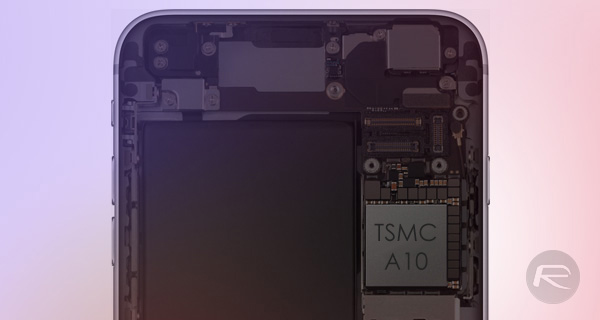A newly surfacing report is suggesting that there has been an exclusivity deal struck between Apple and the Taiwan Semiconductor Manufacturing Company, or TSMC as it’s more well known as. According to the report, Apple and TSMC have been working closely together to strike a deal that will see the Taiwanese company tasked with being the only supplier of chips for the next-generation iPhone. Both Samsung and TSMC shared that responsibility for the iPhone 6s and iPhone 6s Plus last year.
Full production of the next-generation chipset that will power Apple’s iPhone 7 and iPhone 7 Plus – and potentially additional next-generation devices – will reportedly go into full production this coming June at Taiwan Semiconductor Manufacturing Company’s facilities in Taiwan. That would give the company plenty of time to produce enough A10 chips to allow for Apple to introduce the next-generation iPhone to the public in September, with a possible late-September, early-October release schedule.

The decision to work exclusively with TSMC to produce the A10 chip is akin to the relationship that Apple has had with the manufacturing company back in the A8 processor days. Manufacturing of the A8 was handled exclusively by the company, before Samsung managed to get itself back into the mix with a joint manufacturing deal for the Apple A9 that shipped with last year’s iPhone flagship models. The same report is suggesting that it was TSMC’s 10-nanometer manufacturing process technology that managed to close the deal ahead of Samsung this time around.
Reading between the lines, it’s extremely likely that Apple has decided to opt out of working with Samsung from a chip manufacturing perspective due to some of the controversies that arose last year with the release of the iPhone 6s range. Benchmark tests on the iPhone 6s and iPhone 6s Plus range showed that those models containing a TSMC chip performed better than those with a Samsung integrated processor. More importantly, the TSMC manufactured A9 chips offered a getter battery experience and ran cooler than the Samsung counterparts.
If the final offering from Samsung was a cut above then it’s likely that Apple would take some of the controversy on the chin in favour of a superior product. However, the tests have clearly shown that TSMC offered a superior chip – in the case of the A9 anyway – meaning that it’s really a no-brainer for Apple to go with this exclusivity deal for the next-generation of its iOS devices.
(Source: ETNews [Google Translate])
You can follow us on Twitter, add us to your circle on Google+ or like our Facebook page to keep yourself updated on all the latest from Microsoft, Google, Apple and the Web.
